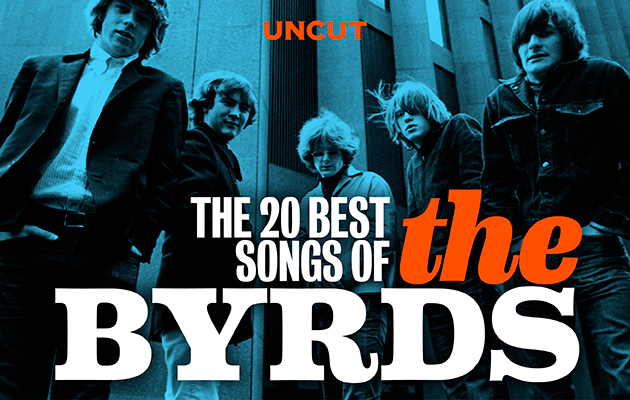20 BALLAD OF EASY RIDER
From Ballad Of Easy Rider (November 1969). Released on Easy Rider soundtrack, August 1969. Single October 1969. Highest US chart position: 65
Gifted the opening couplet by Dylan, McGuinn pens a brief, beautiful sundown song for the hippy idyll. His solo version played over the film credits, but the full Byrds recording is the classic.
IAN McNABB: When I first got into The Byrds in the early ’80s, the consensus was that they were cool until the original lineup dissipated, and then they became less relevant. Sweetheart Of The Rodeo was seen as a complete left turn. They’d turned into a country band, and in the early ’80s that was a lot less cool than it is now! After that, it was like they were dismissed as boring old hippies. It was also hard to get all their albums. So I didn’t hear “Ballad Of Easy Rider” until much later, and I was also quite late coming to the film. I eventually tracked it down on VHS, it cost about 20 quid. Then I heard that song. It plays right at the end of the film but it’s not the final recorded Byrds version. It’s just McGuinn with Gene Parsons on harmonica. Hearing it on the film put the hook in me to check out the album, and that was the first time I heard the song in its full form. It’s really only a minute and a half long, they edited it to make it longer. They stuck the first verse on again at the end and you really can hear it! It has McGuinn’s finger-picking, beautiful strings, and no bass. It also sounds like they’ve looped the drum track by sticking various pieces of tape together. It’s a great lyric. To me, it seems to sum up the whole ethos of the late ’60s hippy dream in so few words and such a small, perfect package. It’s a call to simpler things.
_______________________
19 IF YOU’RE GONE
From the album Turn! Turn! Turn! (December 1965)
A lovelorn missive from master songwriter Gene Clark, with McGuinn’s pipe-like drone adding to the air of rich melancholy.
J MASCIS, Dinosaur Jr: I come back to this a lot. I love the way Gene Clark’s singing is really heartfelt. When I was younger, I thought The Byrds were too wimpy for me, but I got into them in my late twenties. Maybe I got into them through the back door via Gram Parsons, who I was really into, first of all. Dinosaur Jr even did a cover of “I’ll Feel A Whole Lot Better” on an early Byrds tribute record, though I still wasn’t that into them then. I went to see the reformed Buffalo Springfield last year and they reminded me of the fact that The Byrds were kings of the hill and the Springfield always seemed to be trying to push them out of the way. The whole song is pretty cool. It’s got a great guitar line from McGuinn and the backing vocals are fantastic. Most of all, it shows Gene Clark at his best. I really appreciate his skill as a singer. The Byrds are what got me into Rickenbackers. It’s the only 12-string sound to aim for. If it doesn’t sound like The Byrds… all other electric 12-strings sound wrong.
_______________________
18 WILD MOUNTAIN THYME
From Fifth Dimension (July 1966)
A simple, harmony-rich reading of the British trad standard, based on Robert Tannahill’s 18th-Century Scottish folk ballad, “The Braes Of Balquhidder”.
SIMONE FELICE: My initiation to this treasure came not first from The Byrds, but from Sandy Denny, rest her soul. Though, like any true folk tune, it lives on the wind, for all to own, for all to whistle. What I find unique about The Byrds’ rendition is the way they so naturally infuse their signature California harmonies and upbeat drum feel, offering a slightly joyous, dreamy take on such an old, sad, weather-beaten song. One of my favourite bits about their version is the instrumental break where they all hum the vocal line, driving it home, seducing us to hum along, know the melody, share the melody. It is this sense of reverence for what’s come before, this gentle messenger’s spirit, that I admire most about the many gifts The Byrds left us. Whether it was “Wild Mountain Thyme”, “Turn! Turn! Turn!”, “Set You Free This Time” or “Mr Tambourine Man”, it wasn’t my song, your song, his song, her song. It was our songs. Go forth, young one, go tell it on the mountain.



